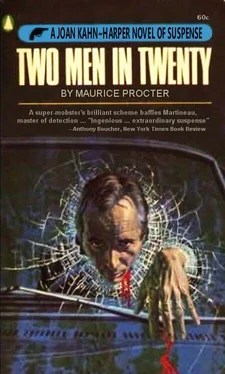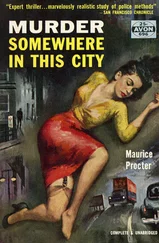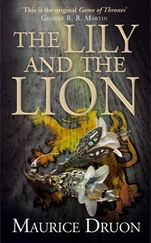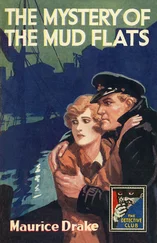Maurice Procter - Two men in twenty
Здесь есть возможность читать онлайн «Maurice Procter - Two men in twenty» весь текст электронной книги совершенно бесплатно (целиком полную версию без сокращений). В некоторых случаях можно слушать аудио, скачать через торрент в формате fb2 и присутствует краткое содержание. Год выпуска: 1963, Издательство: London : Hutchinson, Жанр: Полицейский детектив, на английском языке. Описание произведения, (предисловие) а так же отзывы посетителей доступны на портале библиотеки ЛибКат.
- Название:Two men in twenty
- Автор:
- Издательство:London : Hutchinson
- Жанр:
- Год:1963
- ISBN:нет данных
- Рейтинг книги:4 / 5. Голосов: 1
-
Избранное:Добавить в избранное
- Отзывы:
-
Ваша оценка:
- 80
- 1
- 2
- 3
- 4
- 5
Two men in twenty: краткое содержание, описание и аннотация
Предлагаем к чтению аннотацию, описание, краткое содержание или предисловие (зависит от того, что написал сам автор книги «Two men in twenty»). Если вы не нашли необходимую информацию о книге — напишите в комментариях, мы постараемся отыскать её.
Two men in twenty — читать онлайн бесплатно полную книгу (весь текст) целиком
Ниже представлен текст книги, разбитый по страницам. Система сохранения места последней прочитанной страницы, позволяет с удобством читать онлайн бесплатно книгу «Two men in twenty», без необходимости каждый раз заново искать на чём Вы остановились. Поставьте закладку, и сможете в любой момент перейти на страницу, на которой закончили чтение.
Интервал:
Закладка:
'They say so. My wife says so.'
'Thank you,' said Dorrie. She was disappointed. Those classy stores were no good for shaking a tail. They were never crowded enough. What she wanted was a popular store crammed with women.
A big hotel was not the answer to the problem, either. Hotels were all right for the dodging game if you knew your way around them. Dorrie did not know the Granchester hotels.
She noticed that the taxi was retracing the route which she had come out to Sedgeworth on the bus. That bus! It would be coming along behind, along this same road. But a moment's thought made her see that the bus would be no good, either. The coppers would have it taped long before it reached the city. They would see the empty taxi and talk to the driver, and make the right guess.
Dorrie felt cornered. If only she knew her way about this damned town!
Well, she had an English tongue in her head. She could always ask.
'I've changed my mind,' she said to the driver. 'I'll get off here. If the shops are going to be closed, I might as well call and see my sister-in-law.'
'I'll take you there,' he said. 'What's the address?'
'No, I'll get off here, please. I'm a bit early and I need a little walk.'
When she paid her fare she gave the man a generous tip, so that his feelings about her would not be hostile. You never know, she thought, what he might say when the coppers talk to him. He might say I went this way when I went that way.
As the cab turned to go back to Sedgeworth, Dorrie turned and walked along the first side street. She did not much care for walking, but now she was afraid that she was going to have to walk a long way. And before she had gone very far she knew that her ignorance of the locality was going to increase this distance. She had entered an estate of new houses. The side street ended, or rather divided, and became the circular road which served the estate. She turned back to the main road. The cab was out of sight. She walked briskly towards the city, hoping to find some way of getting off this dangerous road.
In her mind's eye she saw what would happen as soon as the police found the taxi. They would question the driver. They would arrange for the bus to be picked up and followed into town, so that it could be watched at every stop in case the woman they wanted should alight before it reached the terminus. And they would put that blonde zombie into a car with two men, and it would race round this neighbourhood in search of little Dorrie Cain. When they found her they would tie a can to her tail. They had ways. They worked in relays, sometimes even walking ahead of the person they were after. They would let her think she had shaken them off, when actually they had her in sight all the time. They would follow her home.
Or if she made it clear to them that she wasn't going to lead them home, they would stop her and ask questions, and take her to a police station for questioning. The zombie would say she had been loitering with intent, or acting in a suspicious manner. They would search her, to try and find something which would lead them to her associates. Well, she didn't have anything. Or did she? She began to wonder. Laundry marks, for instance. Was she wearing anything with a laundry mark? A London laundry mark would be enough for them, never mind a Granchester mark.
She came to a crossroads. It was a crossing made by a long, straight avenue of new houses. Young trees grew along the kerbs. It had a pleasant air, but not for Dorrie. At this time, going on one o'clock when everybody was indoors for lunch, it was almost deserted. Still, she had to get off the main road. With only a hazy idea of the direction she ought to take, she turned left, hoping that Grange Gardens lay somewhere in that direction. She walked fast, looking back frequently, keeping close to the young trees in the hope that they might help to conceal her should that blonde policewoman's keen glance rake the long emptiness of the avenue.
When she had hastened a breathtaking half mile she found that the avenue was not quite straight. There was a bend which would have been unnoticeable but for an important new view it gave. There in the distance, far away it seemed, a big lorry with a high load appeared and vanished, crossing her line of flight. As she drew nearer to that point she saw more traffic. There was a lot of it; cars, lorries, vans, buses. It was obviously another main road leading into the city. She hurried on, and when she reached it unhindered she thanked her lucky stars. At the corner she looked back for the last time. In the distance along the avenue a car had appeared. In her state of wrought-up trepidation she assumed that it was a police car, but she also realized that against a background of moving vehicles she could hardly be seen from so far away.
She also realized that the car would be right there with her in less than a minute. She looked around, at the traffic, at the shops. There wasn't a taxi in sight, and the only bus she could see was too far away. All the shops were closed. This damned early closing day! But right there on the corner, just where she stood, there was a public house.
The pub door was almost at her elbow. She took one final quick look around, to see if any wayfarer seemed to be interested in her, then she entered. Inside the doorway, in a tiny lobby, she had the choice of three rooms, each door having a pane of frosted glass bearing its designation. There was the Public Bar, the Saloon Bar, and the Ladies Only.
Dorrie went into the Ladies Only, and when she saw that she would be its only occupant she closed the door very quietly. It was a tiny place, with one square table and upholstered seating for about five people around the walls. There was a window through which passing traffic could be seen, and opposite to the window was an open serving hatch with the bar beyond. Obviously the place had been designed so that one or two persons behind the bar could serve the Ladies Only, the Saloon Bar, and probably a little snug for Gents Only on the other side, while the Public Bar would be served by a waiter.
There was nobody in sight beyond the serving hatch and no sound of movement. But voices could be heard. There were at least two quiet-spoken men and one incisive dogmatist. This one Dorrie could hear clearly. He was saying that 'they' couldn't see no further nor Surrey. She had listened to enough man-talk recently, and she knew that cricket was under discussion, and that this was advance criticism of the selectors of England's eleven against the West Indians. Well, she thought, if it kept them happy.
The lower part of the window was semi-opaque, for privacy. By standing on the seat which was opposite the door and sharp left of the serving hatch Dorrie was as far from the window as the room would allow, and able to see both traffic and passers-by. Pressed back into the corner, she waited. The police car-she was sure it was a police car-was about due, and looking through the window at an angle she could see most of the crossing.
To her dismay the car with its police sign slid into view at the kerb beside the inn. It stopped. She could see its occupants, two uniformed policemen in the front seats and the blonde policewoman leaning forward with her head between theirs. They were staring around, talking.
Dorrie stayed where she was. She had been told often enough that the first principle of concealment was immobility, and the second to be of the colour of the background, and the third to be above normal eye level. So she was still, hardly breathing, knowing that a slight flicker of movement would attract the roving glance of the policeman nearest to her, the one beside the driver. She was glad that her neat suit was dark grey, and she was certainly above eye level, but she was terribly afraid that the man in the car would look up and see her white face.
Читать дальшеИнтервал:
Закладка:
Похожие книги на «Two men in twenty»
Представляем Вашему вниманию похожие книги на «Two men in twenty» списком для выбора. Мы отобрали схожую по названию и смыслу литературу в надежде предоставить читателям больше вариантов отыскать новые, интересные, ещё непрочитанные произведения.
Обсуждение, отзывы о книге «Two men in twenty» и просто собственные мнения читателей. Оставьте ваши комментарии, напишите, что Вы думаете о произведении, его смысле или главных героях. Укажите что конкретно понравилось, а что нет, и почему Вы так считаете.












